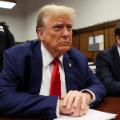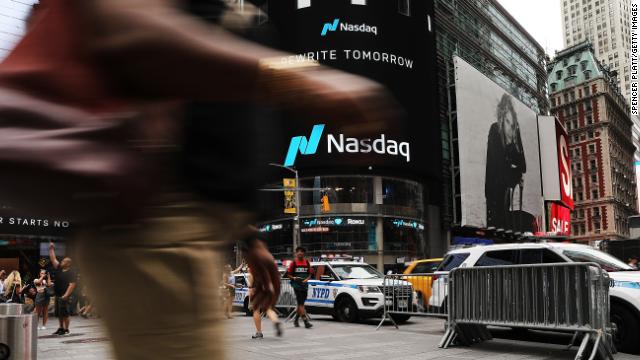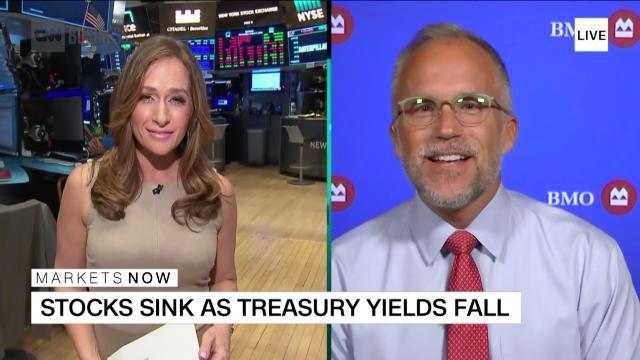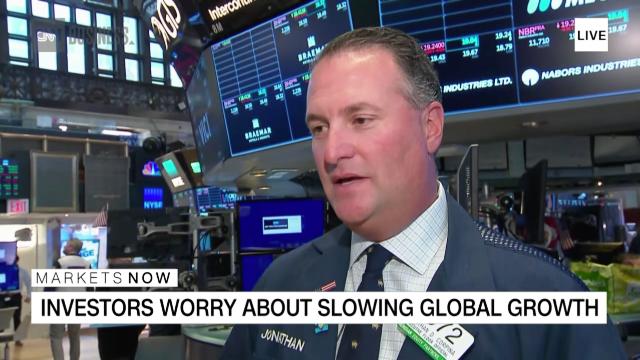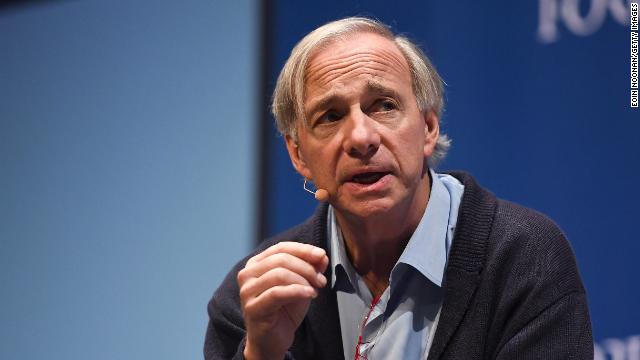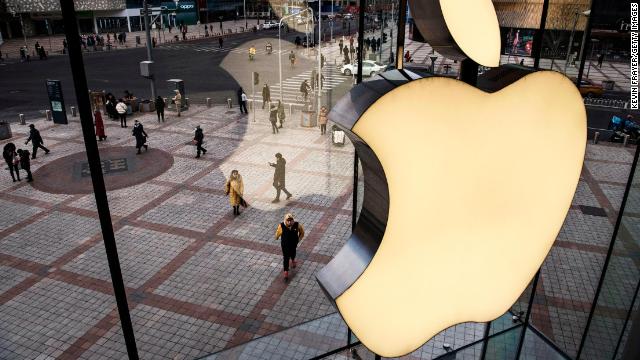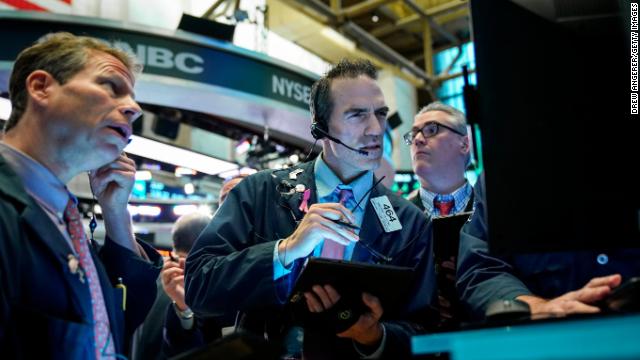
The S&P 500 and Nasdaq Composite managed to close higher after a volatile day in the market, while the Dow gave up some last-minute gains and finished in the red.
Worries about trade and global growth had investors flee to safe investments like Treasury bonds and gold early Monday. This brought the 10-year US Treasury yield to a three-year low and pushed stocks lower. The Dow was down as much as 589 points at its worst.
- The Dow closed down 0.1%, or 22 points.
- The S&P 500 finished 0.1% higher.
- The Nasdaq Composite closed up 0.4%.
It was the second positive day in a row for the S&P and Nasdaq following their worst performance of the year on Monday.
The 10-year Treasury bond last yielded 1.7122%, according to Refinitiv. Gold prices settled 2.4% higher at $1,507.30 an ounce, the highest level since 2013.


